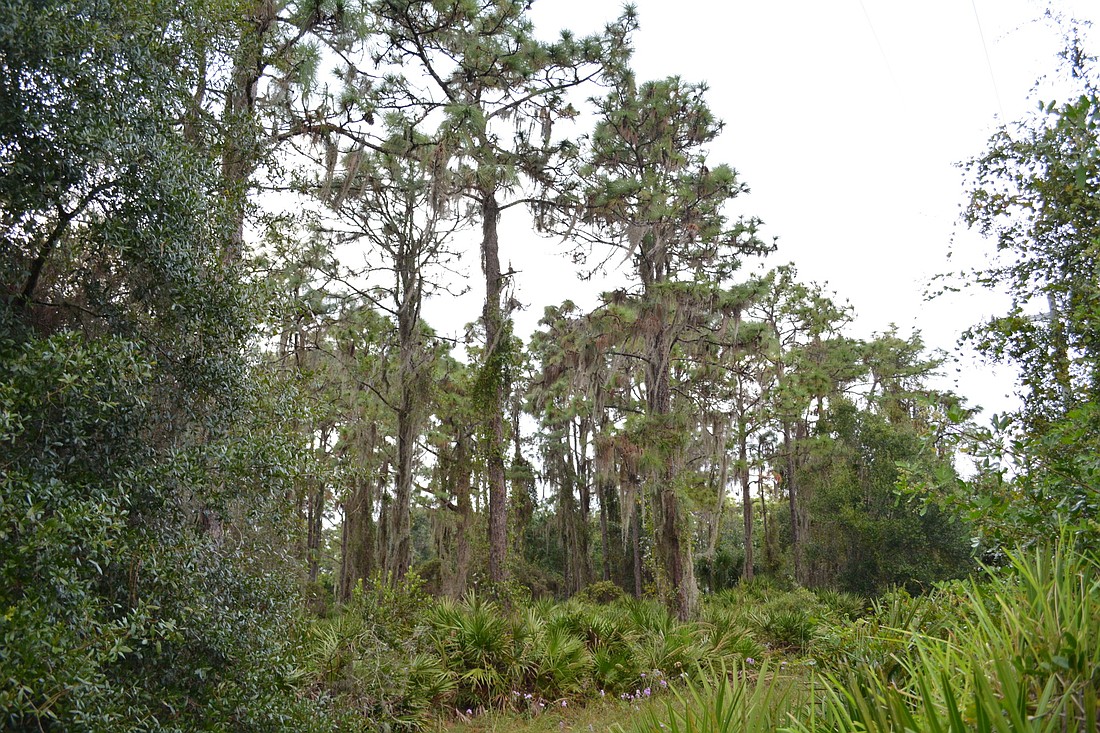- November 28, 2024
-
-
Loading

Loading

For 27 years, the Manatee County Environmental Lands Management and Acquisition Advisory Committee has advised county commissioners on matters of land acquisition.
But there was no dedicated source of funding for such purchases.
“We could not do many of the things that were laid out in the original purpose in 1993,” said ELMAC chairman Bill Webster, who has been a member for 15 years. “We couldn’t go out and find environmental lands because there was no money to (buy it).”
That changed when county voters passed a referendum to "finance the acquisition, improvement, and management of land to protect drinking water sources and water quality, preserve fish and wildlife habitat, prevent stormwater runoff pollution, and provide parks,” agreeing to give up to $50 million of taxpayer money for the county to protect such lands. Members of the ELMAC hope they'll be the ones that help the county decide how to use it.
While the Manatee County commissioners will have final say on such purchases, they will be advised by people with more expertise in such matters. County staff will recommend the commission use ELMAC for this purpose, according to Parks & Natural Resources Department Director Charlie Hunsicker, adding the committee's structures and procedures are aligned to provide this exact support for the board.
The Board of Commissioners will decide after Jan. 1 whether to use ELMAC or a similarly designed board.
The ELMAC was established in 1992, and though it has performed various tasks since, it will likely become much busier before too long.
In the past, the board has focused more on tasks such as maintaining canopies and tree cover, educating people on the many positive effects that trees have on the environment, making Arbor Day proclamations and coordinating with organizations such as Keep Manatee Beautiful.
That’s not to say the ELMAC, which meets once every two months, hasn’t done any work to preserve environmental lands. The committee has evaluated such lands as Johnson Preserve at Braden River, Robinson Preserve and Ungarelli Preserve, all of which they recommended the county to acquire.
The difference is the county can now be more proactive in targeting certain areas of land for environmental protection, with funding to follow up on those targets, rather than waiting for someone to approach them with an opportunity.
“We've lost time and lost valuable, valuable land that could have been preserved,” said ELMAC member Ingrid McClellan, who has been a member for 10 years. “We’ve fallen short in overseeing a balance between development and nature in Manatee County.”
“We've been on the sidelines for a while,” added ELMAC member Randy Cooper, who has been a member for about two years. “And now the coach is finally going to let us play. … We’ve been practicing and training. And I’m looking forward to this opportunity to actually get on the field now and do something.”
Webster said many of the county’s opportunities to obtain land for environmental protection in recent years have come from private negotiations between the county and landowners. For example, a developer might build something in one location that requires him to give some land back to the county according to mitigation rules.
Members of ELMAC can’t disclose specific parcels or even areas of land they are looking at because telegraphing their interest would drive up the cost of purchase. However, Webster said the committee is always interested in coastal lands, lands that feature endangered animal populations and lands in river watersheds, particularly those involving drinking water sources.
The members of ELMAC come from a variety of environmental backgrounds. McClellan’s background, for example, is in environmental education and management, and she has a master’s degree in natural resources. She worked as executive director at Keep Manatee Beautiful for 22 years and has also worked in a marine laboratory.
Webster got his start in the environmental world with a self-described grassroots group called Concerned Citizens of Manatee County, of which he eventually became president. Until three years ago, he also worked in the corporate office of Bealls specializing in public and government affairs, which helped him learn more about the county.
Cooper, meanwhile, is a civil engineer, which he said gave him a strong environmental background because he worked with entities such as water management districts and the Department of Environmental Protection as well as dealing with issues such as stormwater drainage.
Each parcel of land that ELMAC is interested in will be brought before the commissioners in a public meeting, giving Manatee County citizens the chance to weigh in on the purchases they are funding.
“We're always seeking public input,” Cooper said. “There's always an opportunity during the meetings for the public to chime in. … People want [these lands] for their quality of life and exercise and to just get out and enjoy things. So it's important for all of us.”